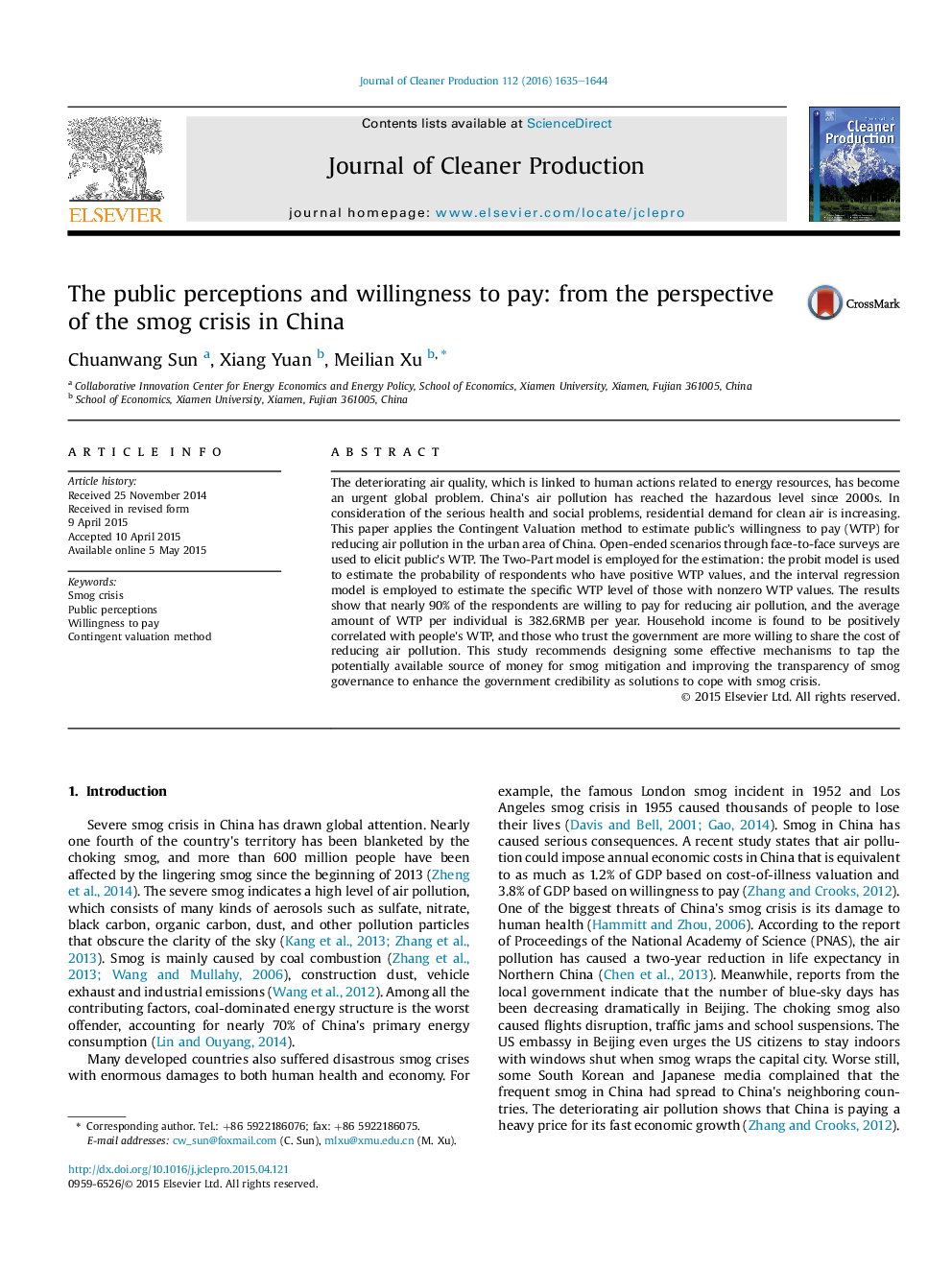| Article ID | Journal | Published Year | Pages | File Type |
|---|---|---|---|---|
| 1744336 | Journal of Cleaner Production | 2016 | 10 Pages |
Abstract
The deteriorating air quality, which is linked to human actions related to energy resources, has become an urgent global problem. China's air pollution has reached the hazardous level since 2000s. In consideration of the serious health and social problems, residential demand for clean air is increasing. This paper applies the Contingent Valuation method to estimate public's willingness to pay (WTP) for reducing air pollution in the urban area of China. Open-ended scenarios through face-to-face surveys are used to elicit public's WTP. The Two-Part model is employed for the estimation: the probit model is used to estimate the probability of respondents who have positive WTP values, and the interval regression model is employed to estimate the specific WTP level of those with nonzero WTP values. The results show that nearly 90% of the respondents are willing to pay for reducing air pollution, and the average amount of WTP per individual is 382.6RMB per year. Household income is found to be positively correlated with people's WTP, and those who trust the government are more willing to share the cost of reducing air pollution. This study recommends designing some effective mechanisms to tap the potentially available source of money for smog mitigation and improving the transparency of smog governance to enhance the government credibility as solutions to cope with smog crisis.
Related Topics
Physical Sciences and Engineering
Energy
Renewable Energy, Sustainability and the Environment
Authors
Chuanwang Sun, Xiang Yuan, Meilian Xu,
